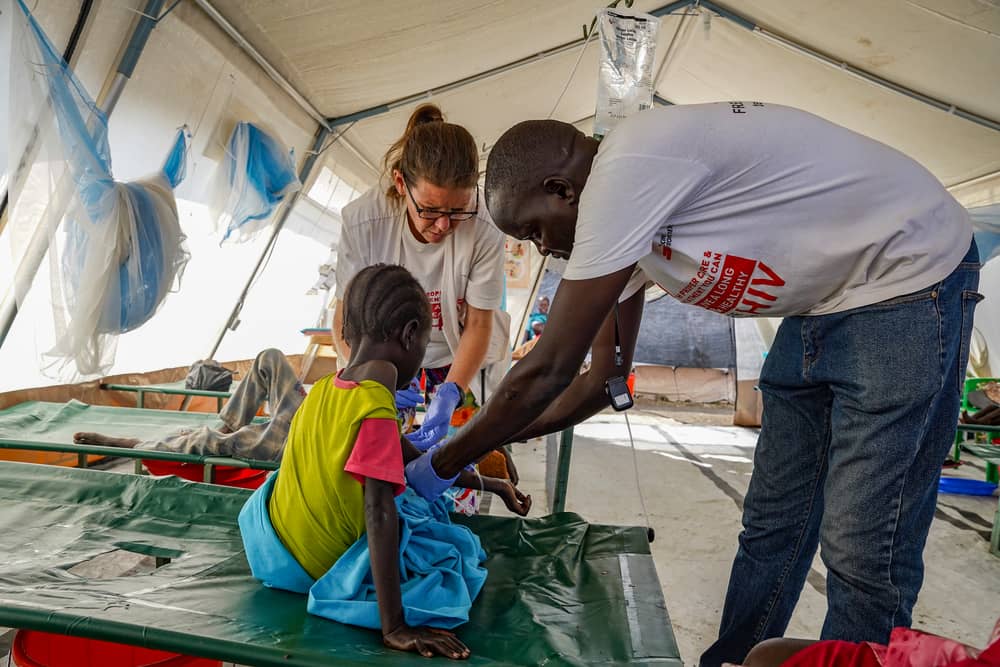From Adia Jildo, in Juba
A total of 1,526 suspected and confirmed cholera cases have been recorded in South
Sudan, with the numbers continuing to rise rapidly, Doctors Without Borders have said.
A total of 737 cholera cases were reported in Malakal, with 646 patients treated – more than 87% of all cases in South Sudan’s Upper Nile State.
Médecins Sans Frontières (MSF) raised the alarm over escalating cholera outbreak in several states of South Sudan.
In October, the government declared cholera an outbreak with over 50 suspected cholera cases, with six confirmed, among refugees, returnees, and the local community in Renk, an entry point for those fleeing Sudan’s conflict.
According to MSF, the number of people affected has risen significantly, placing an immense strain on the limited response.
“The situation in Malakal remains critical, and we are concerned that the outbreak is spreading to neighbouring areas such as Tonga and Kodok. MSF urgently set up the 100-bed cholera treatment centre (CTC) in Assosa and continues to provide critical medical care; however, significant gaps remain, especially in the number of functioning oral rehydration points (ORPs) and water and sanitation,” says Zakaria Mwatia, MSF head of mission in South Sudan.
“We have been stretched thin in our response as we have had to expand our efforts to address critical gaps in the ongoing response.”
The outbreak, initially declared in Renk, Upper Nile State, on 28 October 2024, has spread to Malakal, Bentiu in Unity State, Aweil in Northern Bahr-el Ghazal state, and even South Sudan’s capital, Juba.
Over 850,000 people have crossed from Sudan into South Sudan over the past 18 months, around 75% of them through the Renk crossing into Upper Nile State.
The ongoing influx of refugees and returnees into South Sudan continues to pose risks to the already fragile situation and puts additional pressure on an already much overstretched health system.
More than 37,000 cholera cases have been reported in the recent months Sudan.
However, the health agency said preparedness to address the potential spread to Malakal and other areas has been slow hence a need for more comprehensive, speady response to contain the spread.
“We urgently call for immediate and substantial scale-up of activities to contain this outbreak and prevent further suffering. This requires a collaborative effort from all involved,” Zakaria adds.
“MSF urges all relevant parties – the South Sudanese government, UN agencies, and other humanitarian organisations – to immediately increase their efforts and resources to respond to the cholera outbreak. A collaborative and coordinated approach, encompassing improved water and sanitation, raising awareness about risks and prevention of the disease, community engagement, robust case management, and widescale vaccination, is urgently needed to save lives and prevent further suffering,” said Zakaria.
In early December, the medical agency recorded 283 cases in Renk, of which 100 were treated, a total of 126 cases had been reported in Bentui, Unity state. Aweil, Northern Bahr-el Ghazal State, a total of 130 cases of suspected cholera were been reported, since, 20 November,








